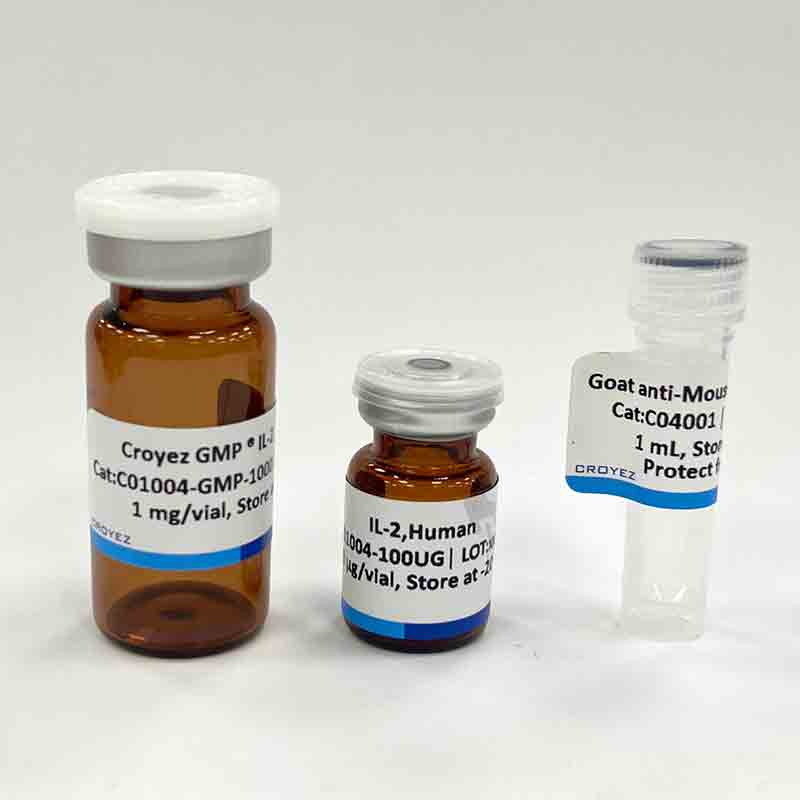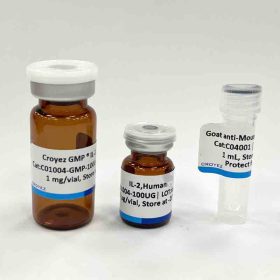Pepsins are aspartic proteases that are synthesized in the gastric mucosa and secreted into the stomach. They are released as zymogens called pepsinogens which are then converted to active pepsins by the acidic pH of gastric juices (1-3). PGA3, PGA4, and PGA5 are human Pepsinogen A isozymogens that differ in sequence by 24 amino acid (aa) residues (4, 5). Diseases associated with PGA5 include Atrophic Gastritis and Gastritis.
Sequence:
MKWLLLLGLVALSECIMYKVPLIRKKSLRRTLSERGLLKDFLKKHNLNPARKYFPQWEAPTLVDEQPLENYLDMEYFGTIGIGTPAQDFTVVFD
TGSSNLWVPSVYCSSLACTNHNRFNPEDSSTYQSTSETVSITYGTGSMTGILGYDTVQVGGISDTNQIFGLSETEPGSFLYYAPFDGILGLAYPS
ISSSGATPVFDNIWNQGLVSQDLFSVYLSADDKSGSVVIFGGIDSSYYTGSLNWVPVTVEGYWQITVDSITMNGETIACAEGCQAIVDTGTSL
LTGPTSPIANIQSDIGASENSDGDMVVSCSAISSLPDIVFTINGVQYPVPPSAYILQSEGSCISGFQGMNVPTESGELWILGDVFIRQYFTVFDR
ANNQVGLAPVA with polyhistidine tag at the C-terminus
Source:
Escherichia coli
Endotoxin Test:
<0.1 EU per 1 μg of the protein by the LAL method.
Purity:
>95% as determined by SDS-PAGE. Ni-NTA chromatography
Formulation:
The protein was lyophilized from a solution containing 1X PBS, pH 8.0.
Reconstitution:
It is recommended to reconstitute the lyophilized protein in sterile H2O to a concentration not less than 100 μg/mL and incubate the stock solution for at least 20 min to ensure sufficient re-dissolved.
Storage:
Lyophilized protein should be stored at -20°C. Upon reconstitution, protein aliquots should be stored at -20°C or -80°C.
Note:
Please use within one month after protein reconstitution.





